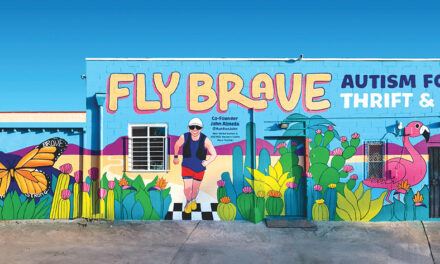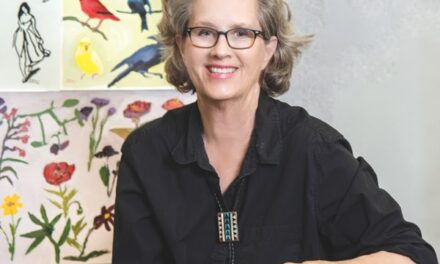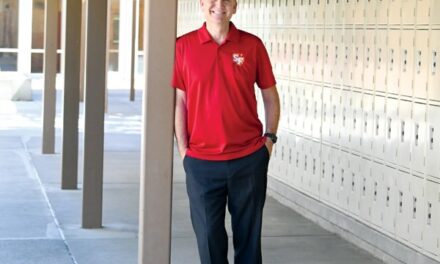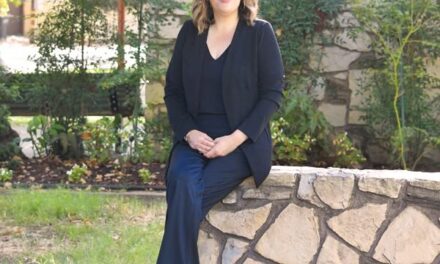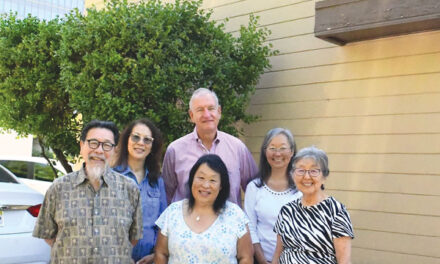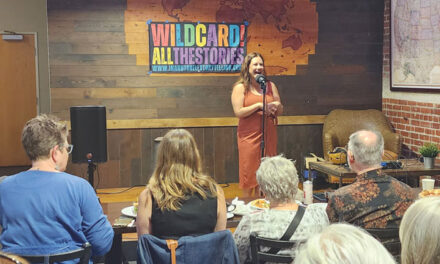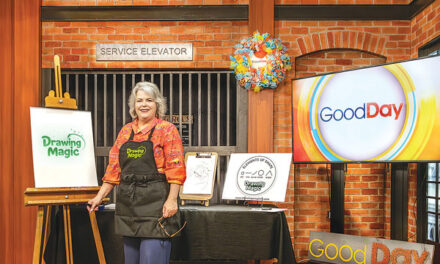An image of a fern emerges from the darkness like a majestic shadow. Delicate legs of a lily of the Nile float on the plane as though submerged. Leaves of bamboo shudder out of focus on a field of blue and green.
These dreamy botanical images are the work of Linda Clark Johnson, a multimedia artist who specializes in cyanotype, one of the oldest forms of photography. English botanist Anna Atkins pioneered the process in the 1840s to document botanicals. Scientist and astronomer Sir John Herschel used the technique to create 19th century blueprints.
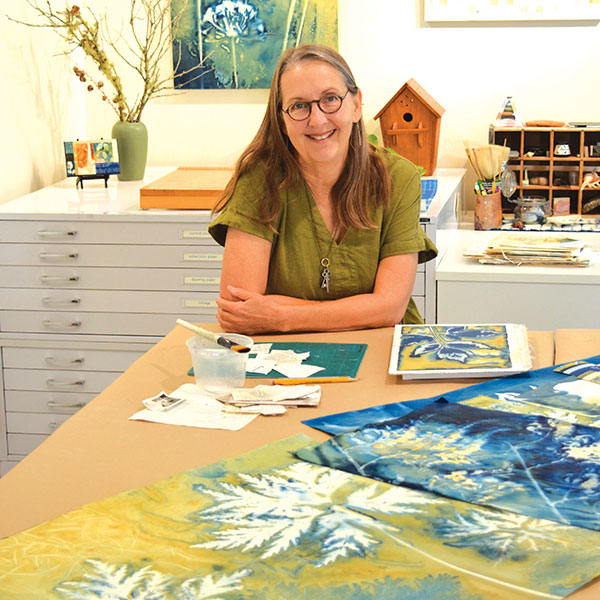
The process entails mixing potassium ferricyanide and ferric ammonium citrate, applying the photosensitive solution to paper or cloth, placing an object on the surface and exposing it to the sun. The reaction between UV light and the solution produces a pigment known as Prussian blue that remains after development. This gives the print its characteristic aqua hue.
“When I first saw (cyanotype), the color blue was so gorgeous and rich, I thought I have to try this,” says Johnson, who teaches and works out of her converted garage studio near UC Davis Medical Center. “It’s become a total love affair.”
Johnson was exposed to art early thanks to a childhood spent traveling with her dad, a civil contractor for the military. By age 8, Johnson had seen “every great art museum in the world” and was producing her own art projects. (She jokes that her middle name is “Project.”)
After earning an art degree from Chico State with the goal of teaching, Johnson realized a classroom job would be tough to find. Voters recently passed Prop. 13. School arts funds were gutted. She shifted her creative focus and became a graphic designer.
Johnson enjoyed a successful career “solving other people’s problems” for the better part of two decades until she heard a report on Capital Public Radio that teachers were again in demand. Johnson jumped at the chance to return to her first love. She earned her teaching credential and landed in a third-grade classroom.
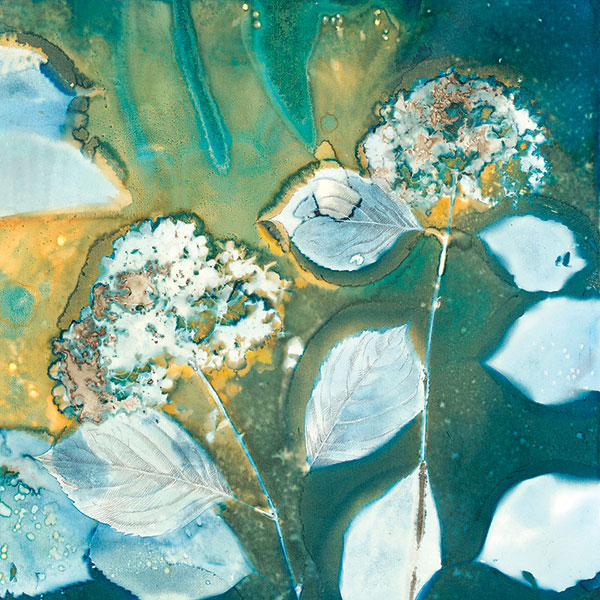
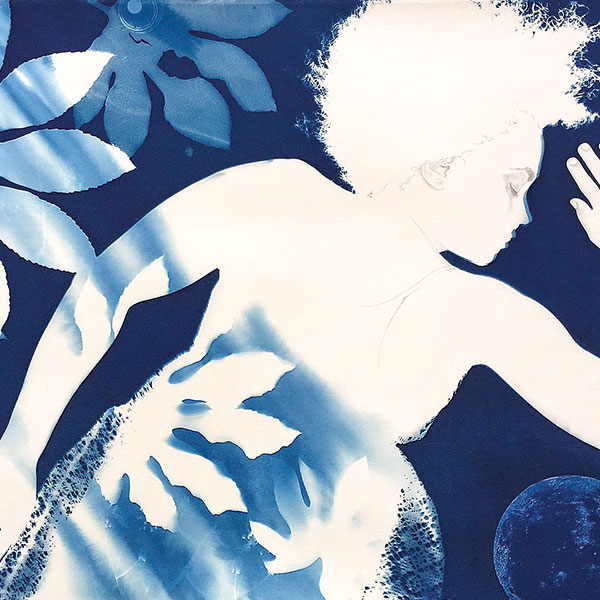
Those third-graders led Johnson to cyanotype. After reading up on the process and procuring a kit of chemicals—which are much safer than they sound and appropriate for children under supervision—she introduced the medium to her class. Her own fascination blossomed.
Johnson’s work expanded over the years. Her collections include prints nestled in vintage books (“Summer Reading”), wet cyanotypes featuring ethereal botanicals (“Solar Alchemy”), one-of-a-kind paper quilts created from prints and studio scraps (“Mend”), silhouettes of sleeping children in vibrant blue dreamscapes (“Dream Time”) and images of bird nests tinged with different colors (“Warm + Cozy Nests”).
“I don’t understand how artists can do the same thing over and over again,” Johnson says. “I love the curiosity of learning new things, experimentation, problem-solving and coming up with my own solution. Who knows what I’m going to do next? I like pushing the limits of the medium.”
Her design savvy and problem-solving skills came in handy during the pandemic. Suddenly, her classes and art sales were online. She discovered she didn’t hate marketing herself when she was able to “keep my voice authentic and talk about what the work was really about.”
The online transition proved so successful that Johnson will stay in the virtual marketplace for the foreseeable future. She participated in Verge Center for the Arts’ annual Sac Open Studios and was surprised by how many people turned out to see and learn about her process.
“People are obviously anxious to get out and see art, participate and engage again,” Johnson says. “Cyanotype is perfect for that. It’s definitely something anyone can do.”
For more information, visit lindaclarkjohnson.com.
Jessica Laskey can be reached at jessrlaskey@gmail.com. Follow us on Facebook, Twitter and Instagram: @insidesacramento.



